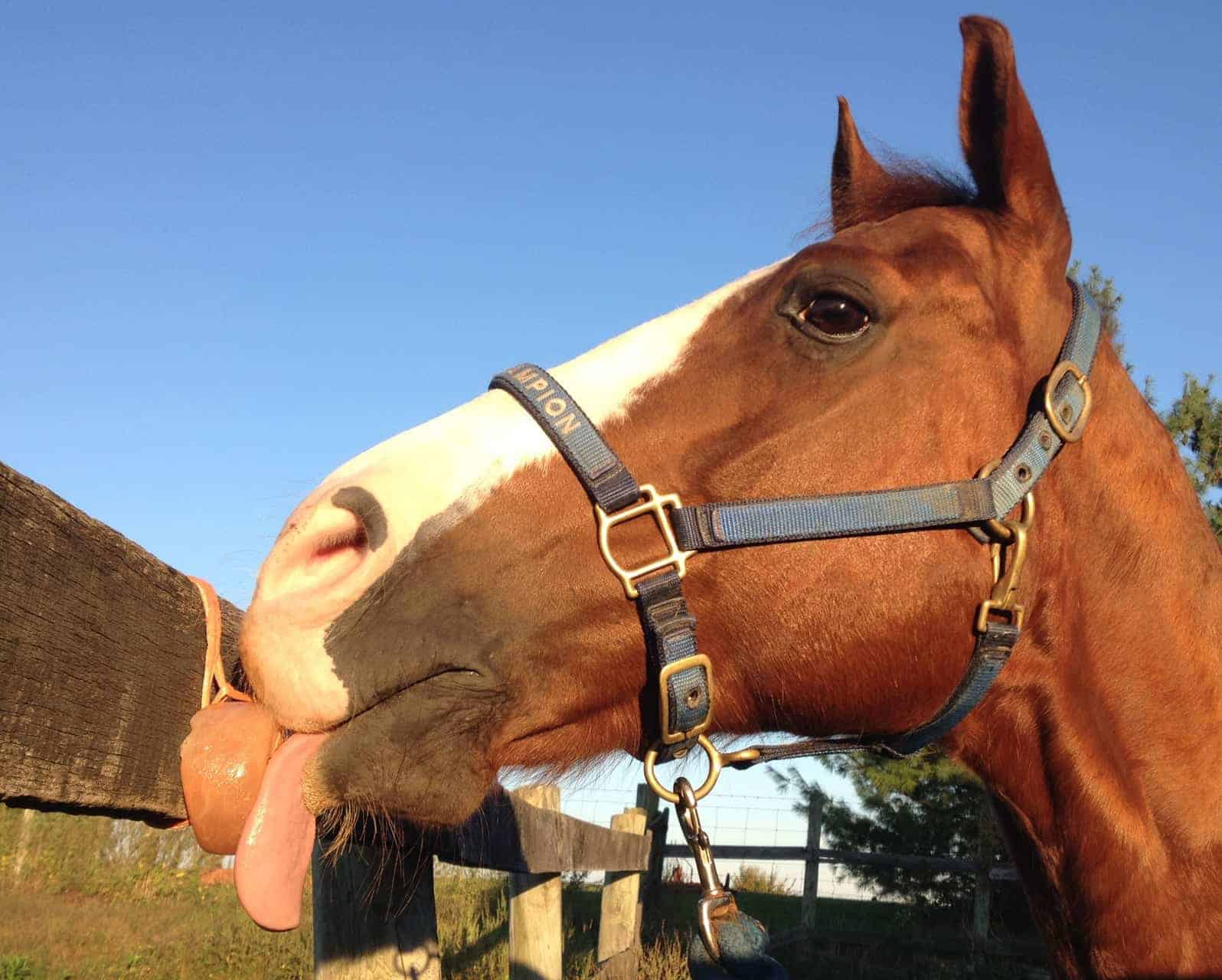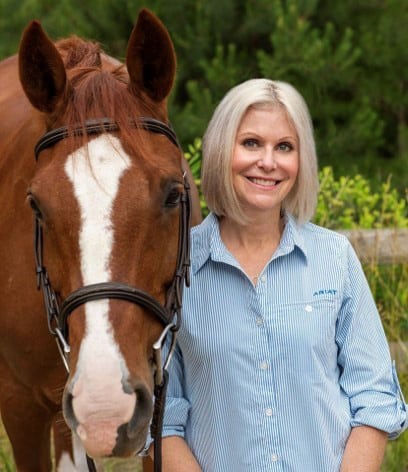My Horse Keeps Eating his Himalayan Salt Block: Is He Okay?

A: Horses are usually good at regulating their salt intake based on need, but some horses simply like its taste and will consume more than they actually require. This normally isn’t a problem, provided the horse has access to plenty of fresh water (which helps flush the excess sodium and chloride) and doesn’t have any kidney problems. That said, for horses that do consume more salt than most, I usually recommend not offering a free-choice salt source and, instead, adding salt to their feed.
Most horses need about 50 grams of salt per day, and while some is likely already included in your commercial concentrate feed, you can add a tablespoon (15 g) or two as needed depending on the rest of your horse’s diet and requirements (based on body weight, workload, or production level).
The type of salt you choose should also depend on requirements (visit with an equine nutritionist, extension agent, or veterinarian to discuss your horse’s specific needs) and what else is in the feed. Plain (white) salt is fine if your horse only needs sodium and chloride (and iodine if feeding iodized table salt), but I might suggest a trace mineral salt if your horse isn’t consuming other supplements or feeds
Create a free account with TheHorse.com to view this content.
TheHorse.com is home to thousands of free articles about horse health care. In order to access some of our exclusive free content, you must be signed into TheHorse.com.
Start your free account today!
Already have an account?
and continue reading.

Written by:
Shannon Pratt-Phillips, MSc, PhD
Related Articles
Stay on top of the most recent Horse Health news with















